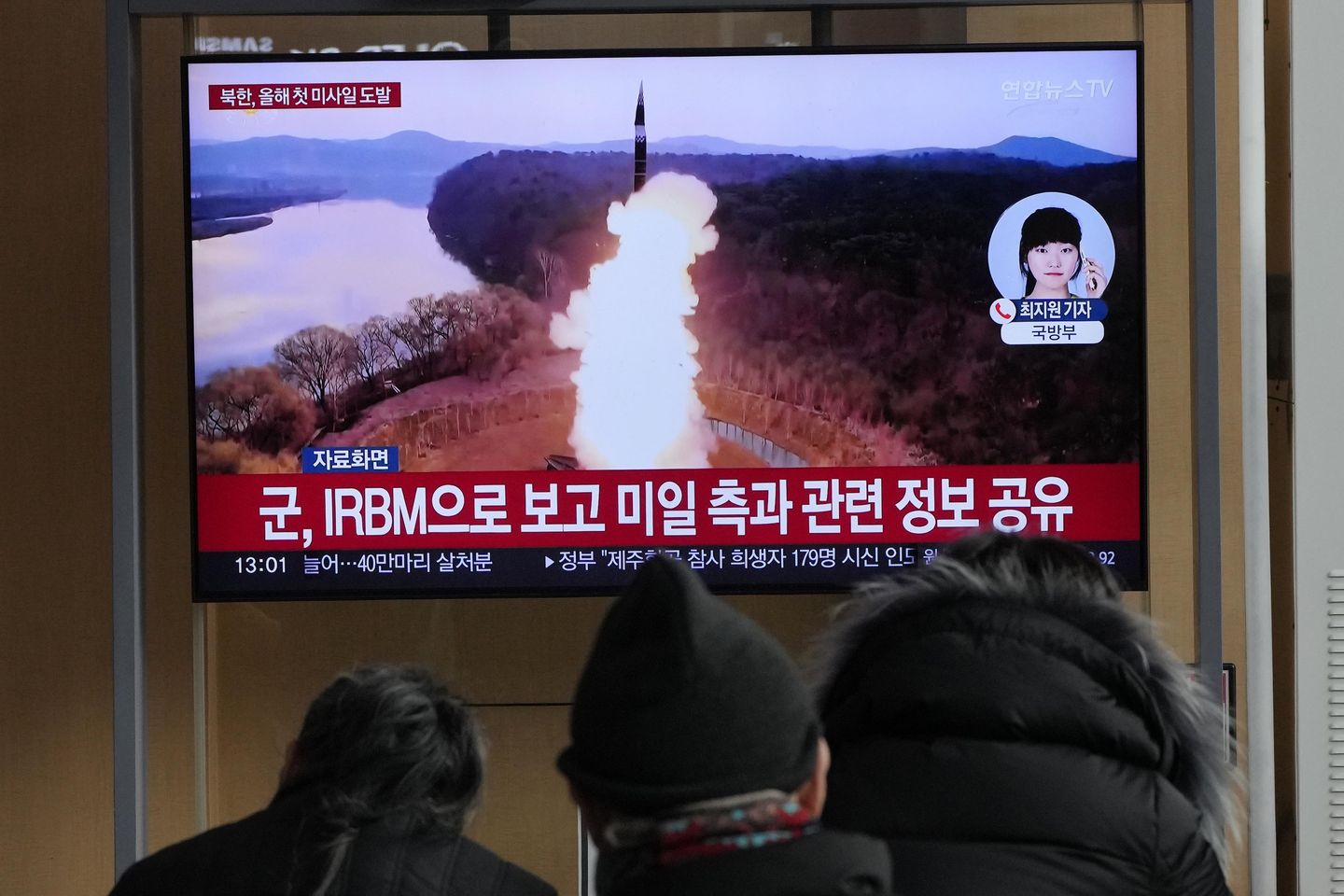The reclusive nation fired two projectiles into the sea off its eastern coast, the latest in a series of missile tests that have raised tensions in the region. The launches came just days after North Korea conducted its first intercontinental ballistic missile (ICBM) test in more than four years, demonstrating its continued progress in developing advanced weapons capabilities.
The timing of the latest tests is significant, as they coincide with a period of political uncertainty in both the United States and South Korea. The Biden administration is nearing the end of its term, with President-elect Joe Biden set to take office in just a few weeks. Meanwhile, South Korean President Moon Jae-in is facing impeachment proceedings over a corruption scandal involving his close associates.
The North Korean regime has a long history of using provocations to test the resolve of its adversaries and advance its strategic goals. This latest round of missile tests appears to be aimed at sending a message to both the outgoing U.S. administration and the embattled South Korean government.
The launches also come at a time of heightened tensions on the Korean Peninsula, as North Korea seeks to bolster its military capabilities and assert its influence in the region. The regime has been steadily expanding its nuclear and missile programs in recent years, despite international sanctions and condemnation.
The ICBM test conducted last week marked a significant escalation of North Korea’s weapons development efforts. The missile, which flew for more than 1,000 kilometers before landing in the Sea of Japan, is believed to be capable of reaching targets in the continental United States. This poses a direct threat to U.S. national security and has raised concerns among U.S. policymakers about the regime’s intentions.
The Biden administration has condemned the missile tests as a violation of United Nations Security Council resolutions and a threat to regional stability. In a statement, the White House called on North Korea to “immediately cease its destabilizing activities and engage in dialogue to achieve the complete denuclearization of the Korean Peninsula.”
The United States has also reaffirmed its commitment to the defense of its allies in the region, including South Korea and Japan. The U.S. military has conducted joint exercises with its partners in response to the North Korean provocations, demonstrating its readiness to defend against any potential threats.
In South Korea, the political crisis has complicated the government’s ability to respond to the North Korean provocations. President Moon’s impeachment has plunged the country into a state of uncertainty, with the possibility of early elections looming. The political turmoil has distracted policymakers from the urgent task of addressing the security threats posed by North Korea.
The South Korean public is deeply divided over the impeachment proceedings, with some supporting the removal of President Moon and others calling for his reinstatement. The political crisis has exposed deep-seated divisions within South Korean society and raised questions about the country’s ability to effectively respond to external threats.
Despite the political turmoil, South Korea remains committed to its alliance with the United States and its efforts to promote peace and stability on the Korean Peninsula. The South Korean government has called for a diplomatic solution to the North Korean crisis and has expressed its willingness to engage in dialogue with the regime.
The latest missile tests underscore the urgent need for renewed diplomatic efforts to address the North Korean threat. The Biden administration has signaled its willingness to engage with North Korea to achieve a peaceful resolution to the nuclear standoff. President-elect Biden has said that he is open to diplomacy with North Korea but will not tolerate provocations or threats to U.S. national security.
The incoming administration faces a daunting task in dealing with the North Korean regime, which has proven to be a formidable adversary. The regime’s continued weapons development efforts pose a direct threat to the United States and its allies, and the Biden administration will need to carefully navigate the complex geopolitics of the region to achieve a lasting peace.
As the Biden administration prepares to take office, it must prioritize the North Korean threat and work closely with its allies in the region to address the security challenges posed by the regime. The incoming administration will need to craft a comprehensive strategy that combines diplomatic engagement with deterrence measures to prevent further escalation of tensions on the Korean Peninsula.
In the meantime, the international community must remain vigilant in monitoring North Korea’s actions and holding the regime accountable for its violations of international norms. The United Nations Security Council must continue to enforce sanctions against North Korea and work to ensure that the regime complies with its obligations under international law.
The latest missile tests serve as a stark reminder of the ongoing security challenges posed by North Korea and the urgent need for a coordinated international response. The Biden administration, in close collaboration with its allies, must work to address the North Korean threat and advance the cause of peace and stability in the region.









